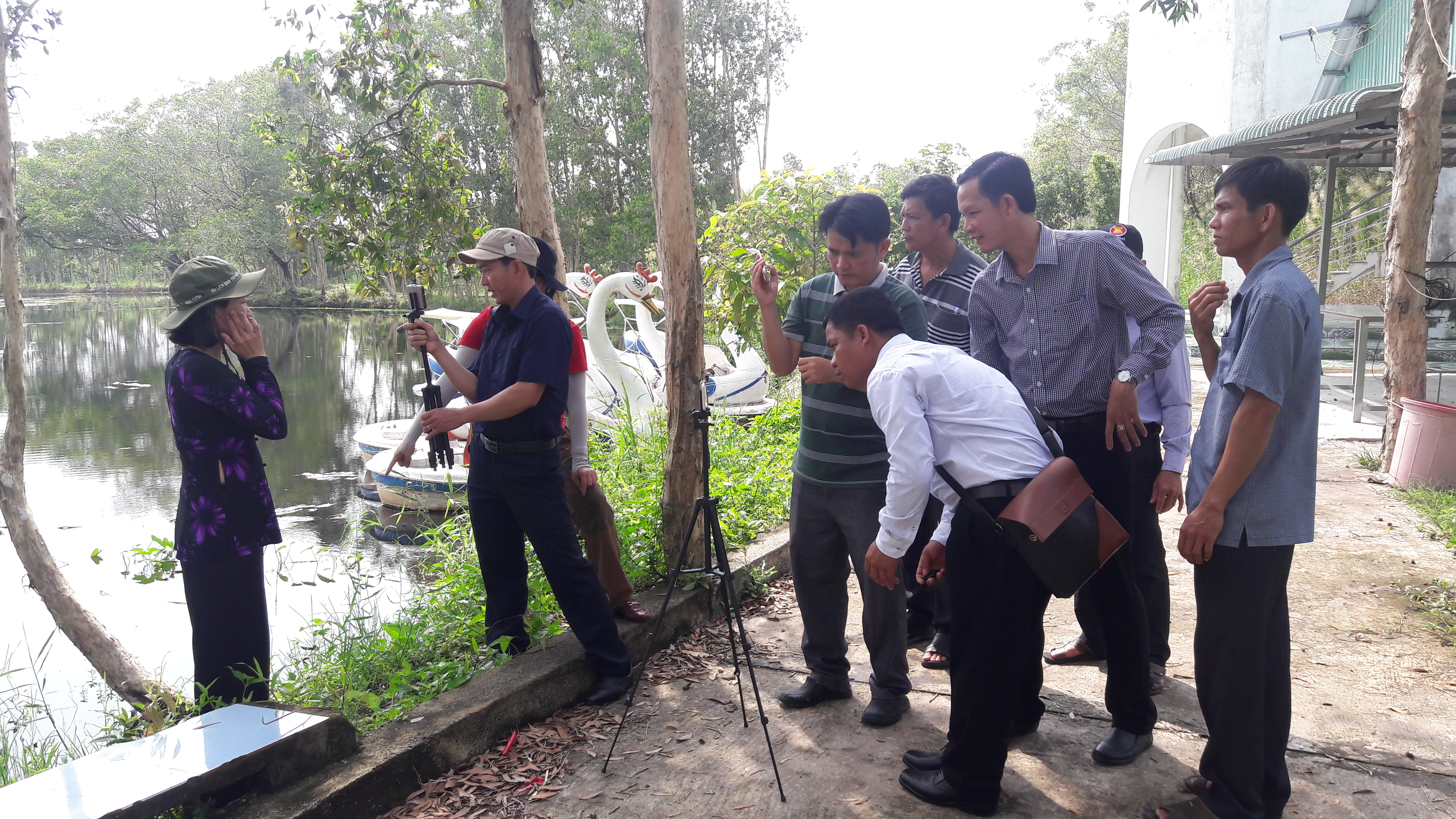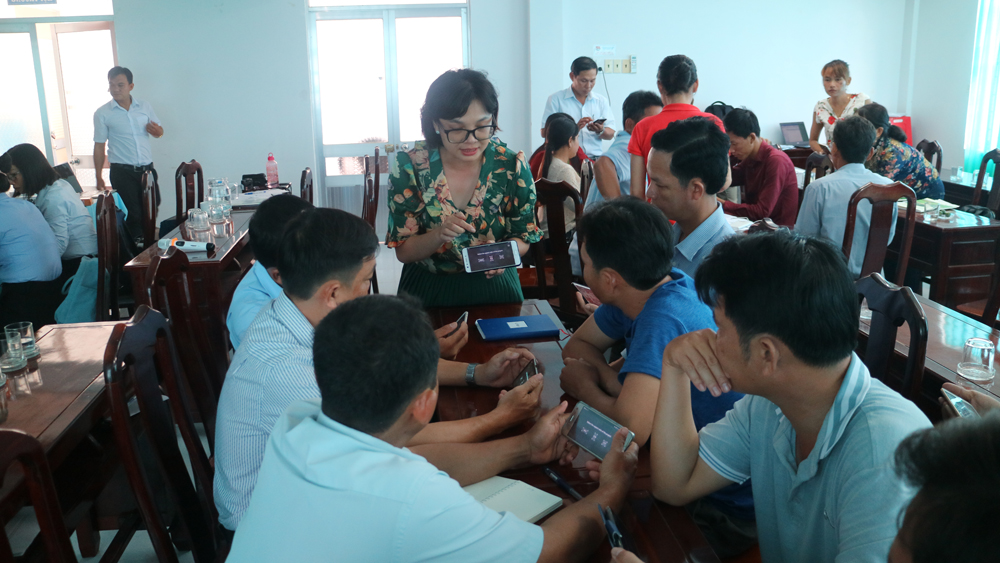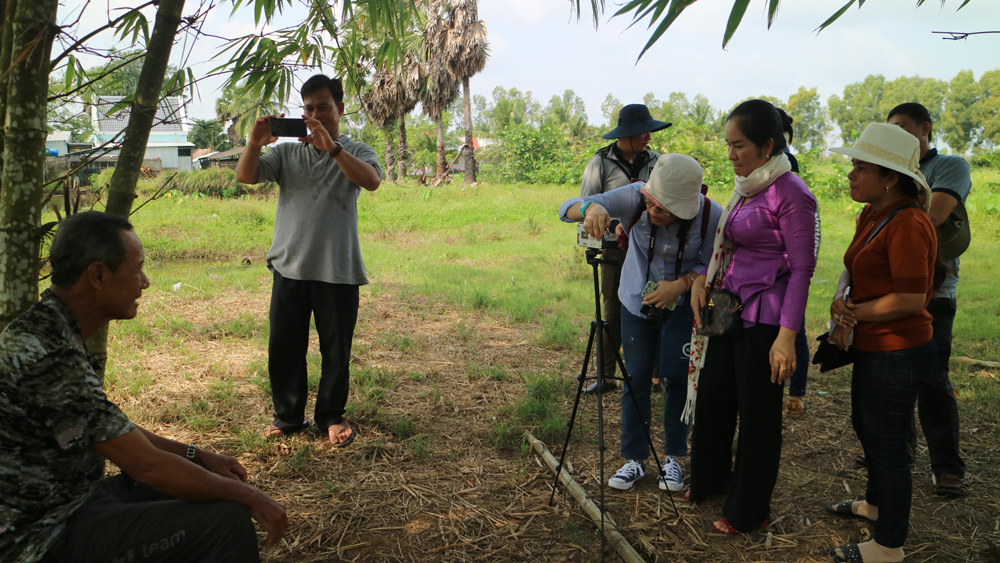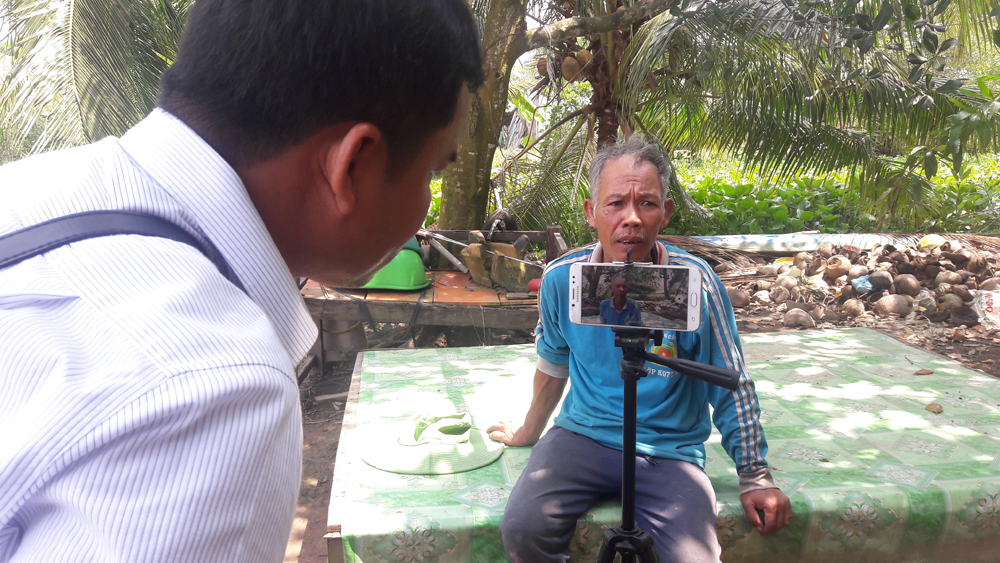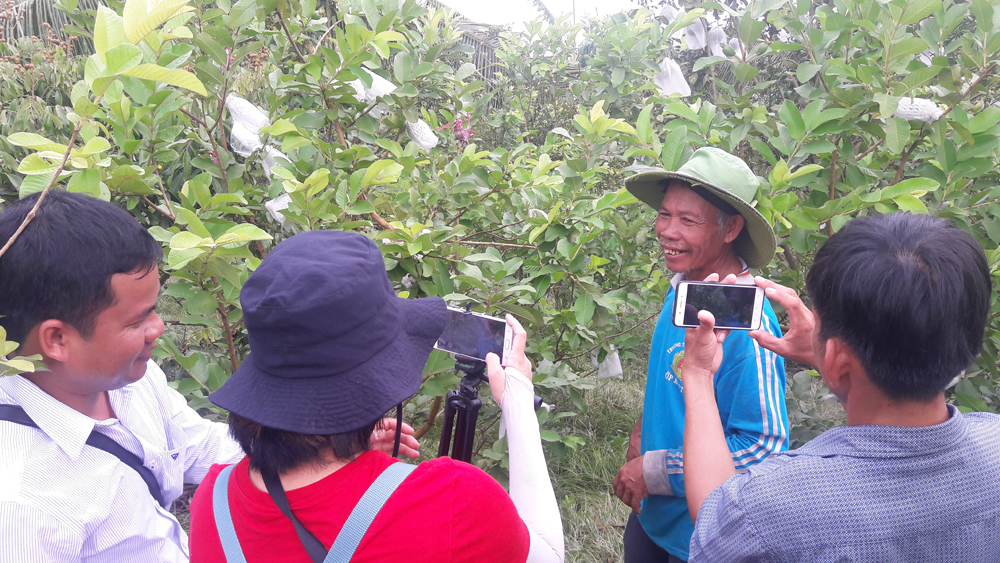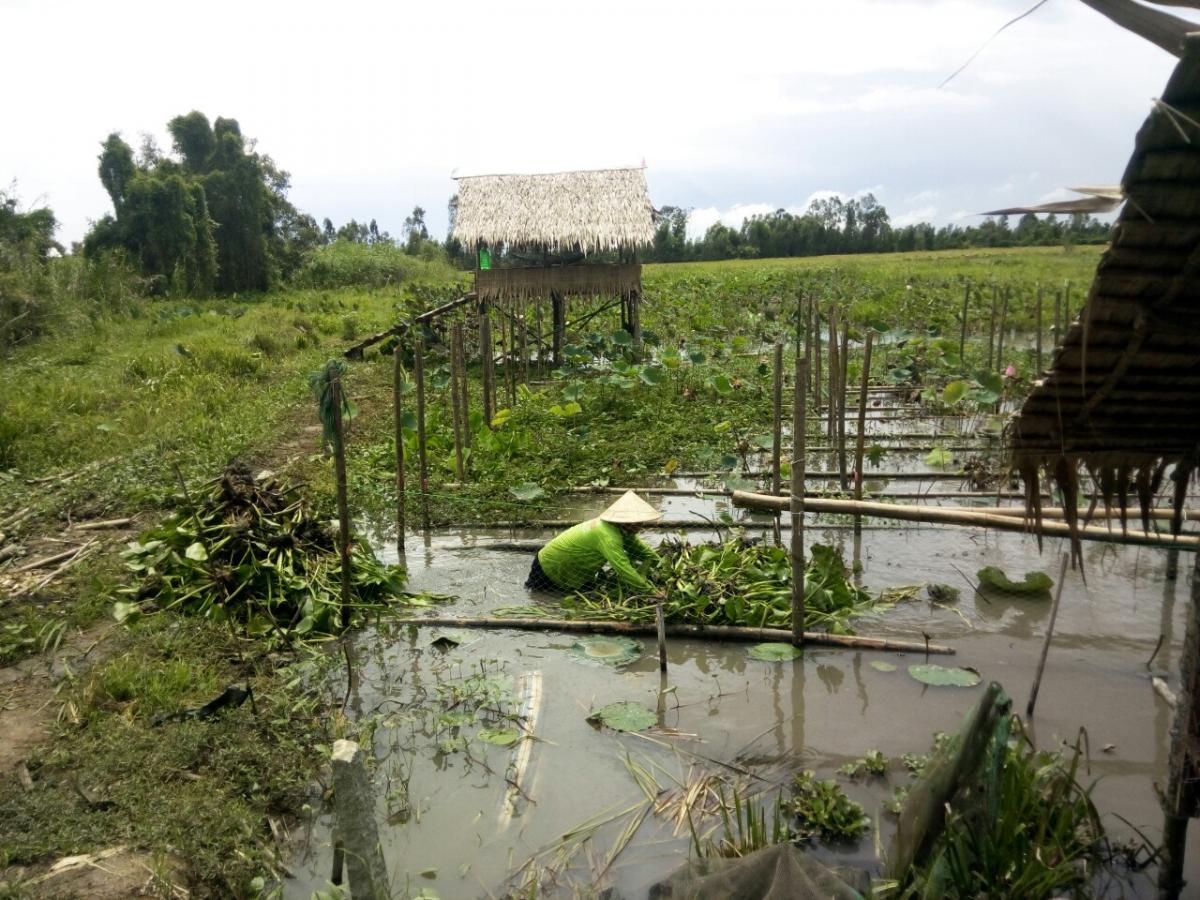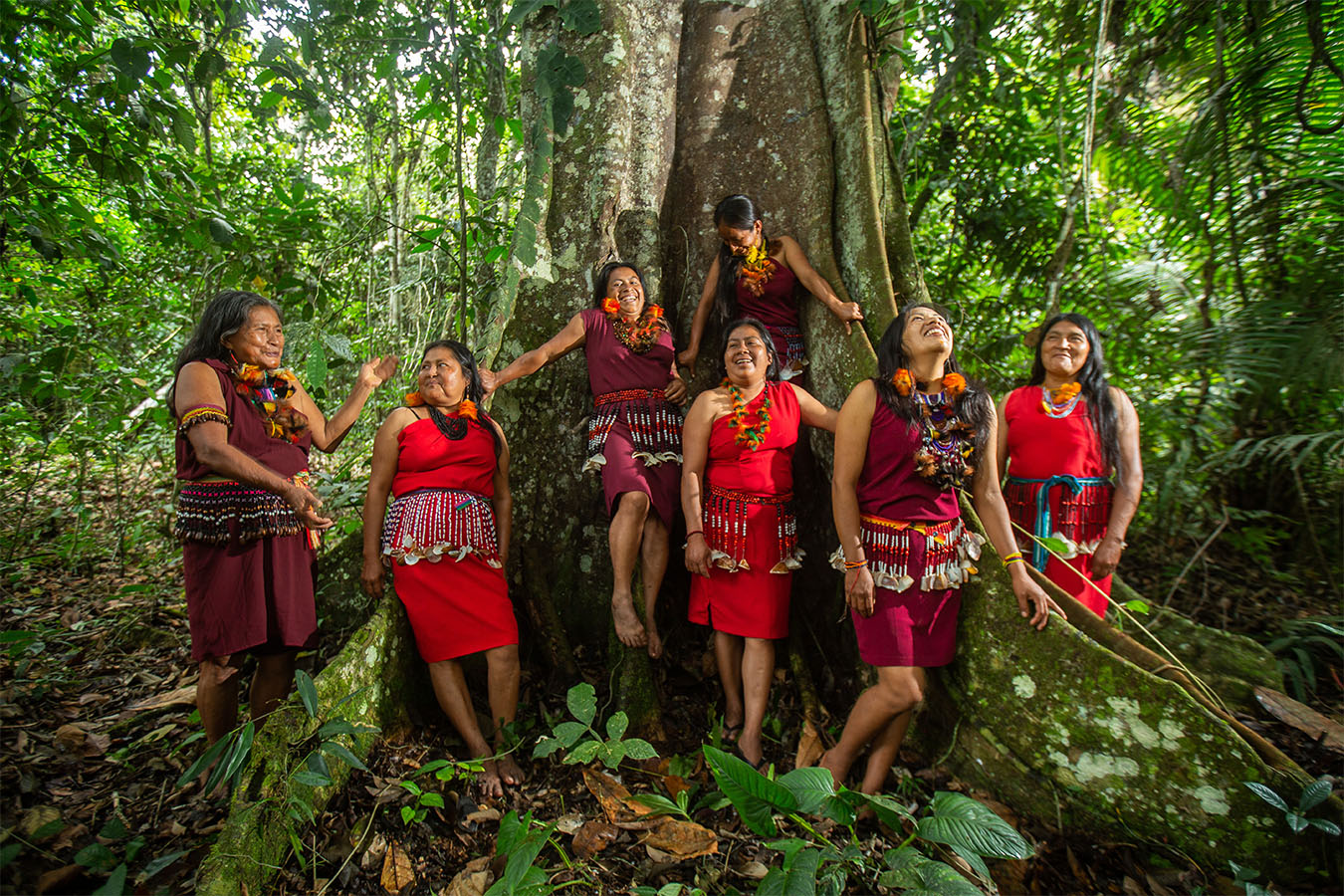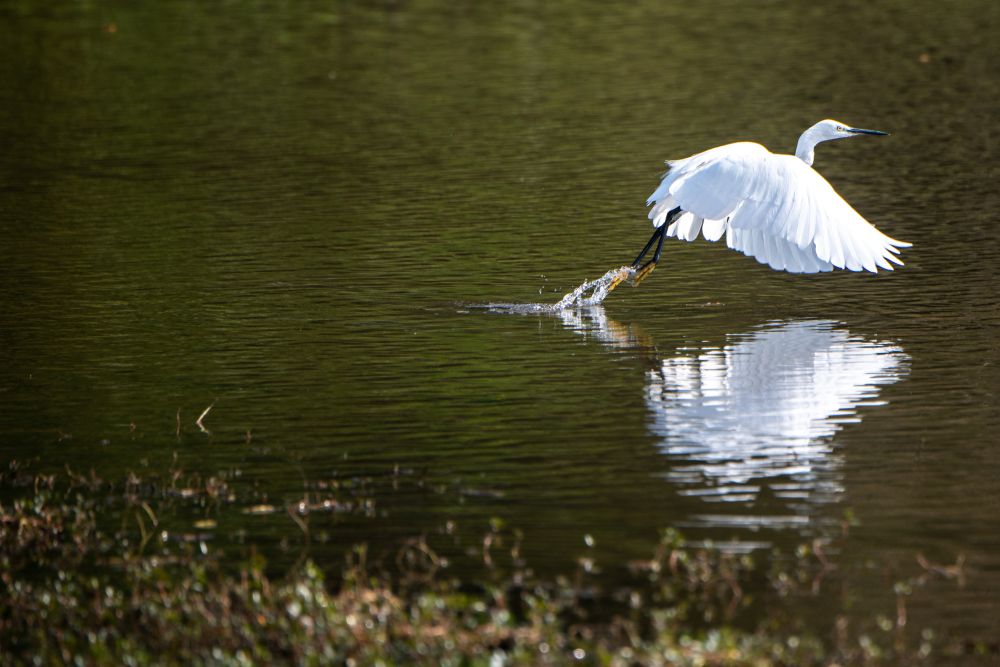Raising the voices of local communities through Citizen Journalism
From 9 -12 September, journalists from Viet Nam Television and Vietnam News collaborated with IUCN to conduct a training on citizen journalism for local community members from three wetlands sites. The training took place in U Minh Thuong National Park, in the Mekong Delta, and aimed to help community members to write and present news stories on wetlands and climate change for national media outlets.
Around 30 representatives of women unions, forest rangers and youth unions from the three Mekong WET project sites (U Minh Thuong National Park, Lang Sen Wetland Nature Reserve, Phu My Species and Habitat Conservation Area) attended the training. Through three-day training, presentations and activities focused on the communities’ role in environmental protection through citizen journalism, the mobile journalism code of ethics, techniques for writing news stories, finding story angles, interviewing people, selecting illustration photos, and shooting videos and making short films using mobile devices.
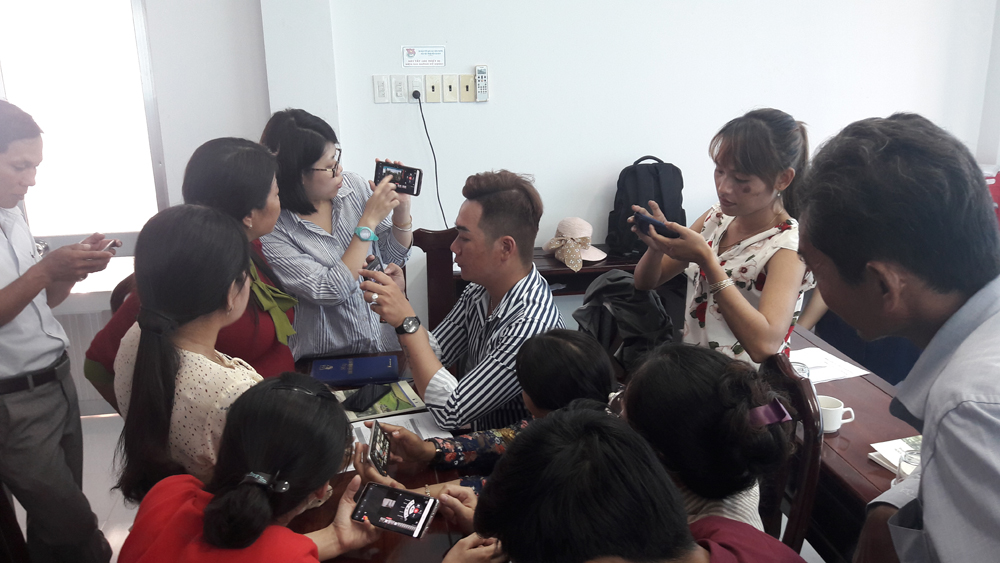 Photo: Trainees were learning the techniques on producing video at the class © IUCN Viet Nam
Photo: Trainees were learning the techniques on producing video at the class © IUCN Viet Nam
Citizen journalism is increasingly being developed and recognised in Viet Nam and throughout the world as a way to use social media and new technology to raise awareness about important issues. With modern technology, anyone can produce news on their own channels and spread it to the wider public. Many media outlets are now using content from citizens in official news stories. For this type of journalism to be effective, it is important to establish a bridge between the official media outlets and citizen journalists. Citizens journalists must be trained on how to report properly, ethically and professionally for higher quality content.
In Viet Nam, local people in Ramsar sites, whose livelihoods rely on wetlands resources, play important roles in identifying options to increase the resilience of wetlands. Because of this, empowering the local communities to conserve wetlands and Ramsar sites is essential. With an aim of building capacity for local communities to raise awareness to the public on the impacts of climate change on wetlands ecosystems, IUCN’s Mekong WET project is helping these communities find their voice.
The evaluation results showed that the training met the expectations of all trainees in which 78% rated “very good” and 22% rated “good”. Around 80% of trainees said they will apply knowledge and skills from the training to share news, contents, videos with mojovietnam network whilst less than 1% didn’t know to apply learnt techniques into practice. 39% of the trainees assessed the most useful session is skills on writing news, photostory, and shooting video and 22% considered the most useful skill is the field visit and practice on producing films on smartphones.
“Although the training is not long, trainers tried to convey most of basic knowledge and techniques on how to take good photos, to write good newstory to transfer what we desire to say. In the past, when I worked with local villagers about conservation activities, we simply used printed documents. With new knowledge, I can produce my own video so that local people can better visualize my story, helping my communication activities at the community level to be more effective” shared Mr. Nguyen Linh Em, a trainee from Lang Sen Wetland Nature Reserve.
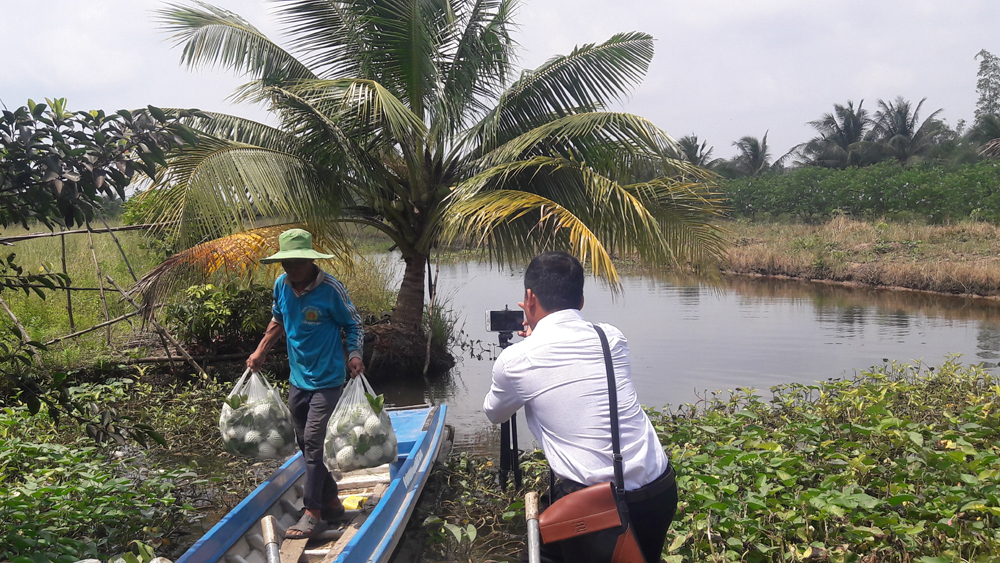 Photo: A trainee was shooting video at the field visit © IUCN Viet Nam
Photo: A trainee was shooting video at the field visit © IUCN Viet Nam
The training was followed by the field trip to three canals in U Minh Thuong National Park where local farmers plant fruits and raise bats and goats on their farms. Trainees interviewed local people and practised the skills and knowledge gained in the theoretical sessions, After the field trip, trainees presented their new reports and received comments for improvements from the trainers. To sustain this new network, it is important to maintain the momentum after the training by getting them actively involved and gathering their news reports. Outside individuals who are interested can also contribute news reports to mojovietnam2019@gmail.com.
This activity was conducted as part of Mekong WET: Building Resilience of Wetlands in the Lower Mekong Region” project with the financial support of the International Climate Initiative (IKI) of the German Federal Ministry for the Environment, Nature Conservation, Building and Nuclear Safety (BMUB). Mekong WET aims to build climate resilience by harnessing the benefits of wetlands in Cambodia, Lao PDR, Thailand, and Viet Nam. For more information about the training, please see the video at LINK.
